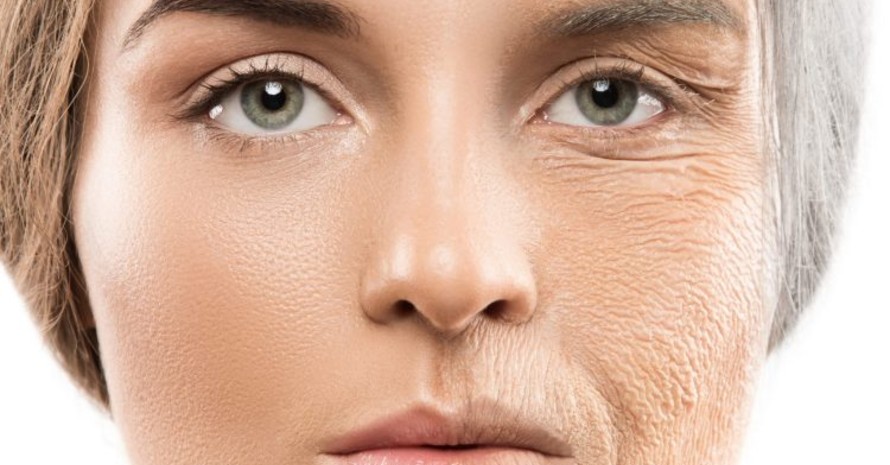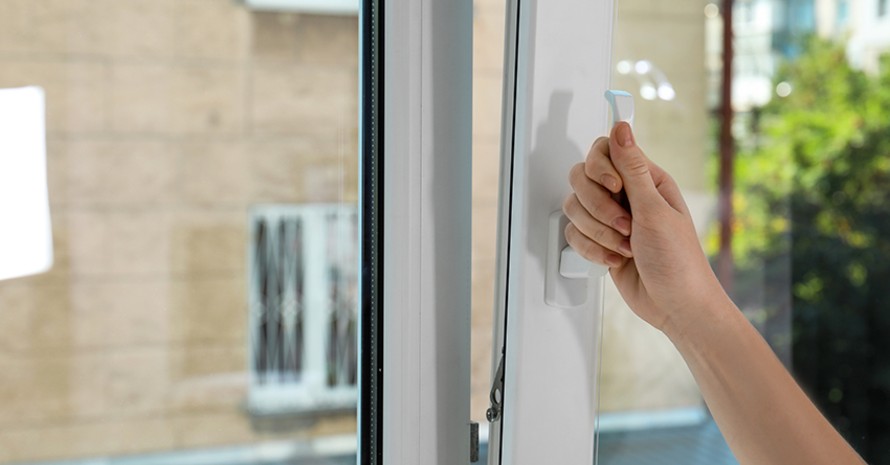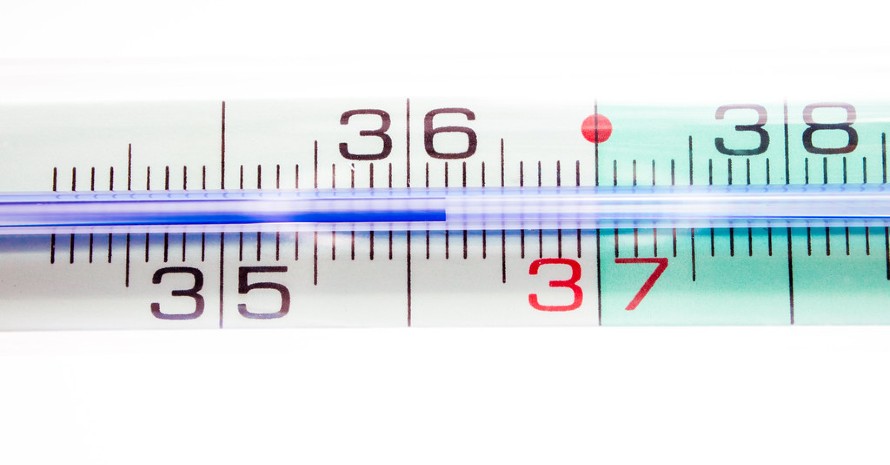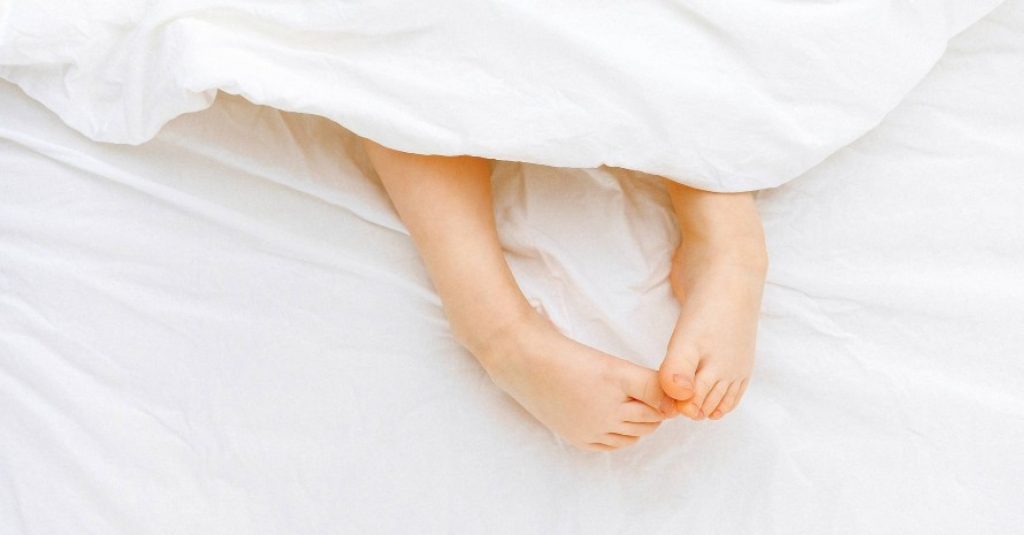Have you ever wondered why sleeping in a cool, well-ventilated room seems so pleasant after waking up? It’s not just the heat or moisture, right? There is more to it than it seems at first. For instance, during the chilly seasons, when you’re eager to cozy up to a woolen blanket and slumber quietly, but later, you open your eyes, and it feels like a high-heat torture chamber. In the end, despite a sufficient number of sleep hours, you’re tired, aggravated, and sweaty.
Apparently, our bodies require lower temperatures for conducting effective metabolism and sustaining normal levels of hormones. Besides the comfort and breathability, lower temperatures offer a whole range of positive outcomes for our health. A multitude of studies has shown that exposing your skin and airways to cool air can improve your sleep, treat insomnia, and mental conditions, such as depression or anxiety. Moreover, increasing the air circulation in one’s lungs with fresh, cool air might have benefits for one’s metabolism, overeating, and even underlying conditions.
Though it’s hard to completely elaborate on how our bodies can benefit from sleeping in a cold room, there are some well-known, scientifically-proven facts. And today we’re going to get some insights on them.
Temperature & Sleep: How Cold Temperatures Affect Sleep
It’s been proven that fluctuating room temperatures show various effects on our body, health, and even mental capacities. Depending on our current sleep stage, higher or lower thermoregulation can have temporary or even long-lasting effects, which can result in both benefits and harmful outcomes.
Interestingly, we produce an immense amount of heat due to accelerated metabolism, which normally takes place at night. As our thermoregulation is very mutable during the night, our body is in a constant need of correlating its temperature to the one around it. Sleeping in a room where the air is either too hot or too cold can spur unusual and sometimes irreversible changes.
Is It Really Better to Sleep in a Cold Room?

When it comes to temperatures, there is, of course, no exact science to define the best conditions for each individual. Can sleeping in a cold room make you sick? Yes, it can. But each body has an array of intrinsic features, and every person experiences sleep differently. Especially, it relates to the temperature and level of moisture of the room air. On the other hand, there is a benchmark for what scientists call ‘the optimal thermal conditions’. By their definition, the average person experiences the best sleep possible in the range of 64.4℉ to 68℉ (18℃-20℃), but not lower than 60.8℉ (16℃).
At such temperatures, the body begins to mobilize its resources to maintain proper thermoregulation. It’s as if your body starts preparing itself for harsh conditions and reaches out for the resources hidden in the back drawer. Though your overall constitution becomes a bit stiffer, the muscles relax to preserve energy, which is emitted to the top layers of your skin.
In the end, just like during a normal night’s sleep at regular room temperature, it produces a sufficient and efficient amount of heat and energy that spreads evenly all over the body. However, this time, with cooler air, your body is getting ready to fortify your immune system and put you in the ‘safe mode’ for nocturnal nourishment.
Why Do We Sleep Better in a Cold Room Then?
With colder temperatures, the body’s thermoregulation is improved. Now, it doesn’t have to look for the means of cooling itself down but rather of heating itself. Interestingly, our inner life systems are worse at cooling and lowering temperatures than at increasing them. Therefore, you start feeling better as your body is doing what it’s really good at, which is heating you from the inside.
Besides this, hotter air is filled with CO2 more than cool air, which, at its turn, is full of Oxygen. As you inhale cold air, your bloodstream and, consequently, inner bodies start receiving more and more O2. It causes increased production of hemoglobin cells that travel more rapidly and more effectively through the bloodstream. The cells deliver Oxygen to your tissues, resulting in faster tissue restoration and reproduction processes. Moreover, the very particles deliver fresh, sufficient O2 to your brain. When the brain receives enough Oxygen, it improves its neural connections and signal reception. Hence, it results in relaxation and peace in sleep.
Another interesting feature caused by colder rooms is perspiration; rather, its absence. Since the body doesn’t struggle with balancing the inner and outer temperatures, it doesn’t have to excrete toxins and fats. Now, your skin is clean of body oils and liquids, which don’t clog your pores anymore. Thus, it leads to improving and facilitating your skin air circulation.
Health, Sleep, and Temperatures: Benefits of Sleeping in a Cool Room
Now that we know that colder air and lower temperatures do influence our body, it’s time to see the specific changes that might occur. Though the benefits of sleeping in a cold room aren’t always visible right away, it’s possible to experience shifts in your health and wellbeing after some of them without delay.
To keep it straight, it’s important to underscore that each body can react to temperature changes in the most unusual ways. Some people feel upbeat after spending a night in a sauna-like room with the windows closed, whereas others find it more than suitable to ventilate the space despite the cold weather outside.
It’s more than essential to keep in mind that your personal preferences, body peculiarities, and probable health conditions determine your ideal sleeping temperature.
Sleep quality
Your body functions in the way that you experience temperature troughs before going to bed. This becomes very visual when you start yawning, and it’s like it’s getting colder around, thus making you look for a blanket. On the other hand, around four or five in the morning, the body gets hotter because it initiates your awakening. It deploys your preserved resources to warm up the whole system. By keeping your room cold or at least cool, you can assist your inner mechanisms in regulating the temperature. It improves the overall relaxation and energy distribution, thus bettering your night’s sleep.
Anti-aging
Yes, it’s true. Sleeping well has a direct impact on the way you look. Sleeping in cold rooms has even better effects since the cold stimulates our body to produce more essential secretions. When sleeping enough, your body produces sufficient amounts of hormones and secretions that are so vital for your skin, bones, muscles, and hair. Melatonin is a hormone, which is released during sleep most and is essential for our mental and physical wellbeing. When produced enough, it stimulates the cells and abates cell aging. Studies showed that when a critter received additional doses of melatonin, its lifespan increased by 30% and it started facing signs of aging a few months later than usual.

Metabolic disease prevention
While sleeping in a colder environment, your metabolism increases due to the inner temperature rise. This results in better metabolic processes, like the decomposition of fats and carbs, as well as a better energy exchange and distribution around the body. In other words, your preserved fats are burnt by your body temperature more rapidly. Consequently, it’s quite likely that your weight will start dropping. Though it doesn’t guarantee an immense weight loss or a six-pack coming from nowhere upon awakening, it helps your body filter fats better than in a warm or hot room, as well as it redistributes them more efficiently.
Melatonin level improvement. As it’s already been mentioned, good night’s sleep in a cold room encourages your pineal gland to produce larger amounts of melatonin. Not only does the hormone enhance your inner-cell environment, but it also improves your overall body restoration. When there is an abundance of melatonin in the system, hair, nail, and tissue growths are increased. This way, your body renews faster and easier. Putting it in simpler words, you might want to cut on those vitamins and supplements since your body now is getting a more effective, natural component to finish and accelerate your constitutional healing.
Stress relief
By surrounding yourself with fresh, cold air, you assist your physical and mental capacities in getting the rest they deserve. Various sleeping in cold room effects grant your brain more benefits than you could ever possibly imagine. When the cold air, filled with fresh Oxygen reaches your brain, it immediately causes improvements in your brain’s neural connections. As the signals move faster through your cortex, your muscles receive relieving time-off while the head is busy resetting the whole body. The very melatonin, which I have mentioned before, is a great antidepressant. It calms down the nervous system and facilitates breathing. Also, cold temperatures have proved to cause more vivid dreams that a sleeper is likely to remember in the morning.
Insomnia prevention
Does heat or cold help sleep to improve? The cold does, but definitely not the heat. An extremely active daily routine and stressing-out aren’t the only reasons for an uncalm sleep. There are lots of factors that cause insomnia, including hormonal disbalance and too much coffee. However, it’s been scientifically showcased that people who suffer from sleep deprivation have ‘hotter’ bodies on average. This theory comes from the fact that high body temperature is a brain signal that simply cannot find its peace.Make sure to keep your room cool enough so that you can prevent your brain from working excessively at night. You will ensure a faster and easier way for your mind center to rest by lowering the room’s temperature.
Mood regulation
Based on the factors stated above, your mood can depend on a variety of nocturnal disturbances. Sometimes, the levels of melatonin are simply not sufficient, thus making your brain stay more awake than asleep at night. Or some metabolic processes can cause discomfort or unnecessary in-body activities that won’t let you sleep enough. Anyway, whether it’s the body or the stress, waking up in a foul mood can be caused by quite a few reasons. However, there are higher chances of preventing such causes by reducing the heat in your room. This way, you’ll be able to identify whether your mood depends on your night’s sleep or something else to look for.
Digestion
As sleeping in a cooler environment can help with stress relief and mood regulation, so can it be useful for your digestion. A study has shown that people with occasional and underlying digestion issues are likely to experience relief from stomach aches after ‘cooler’ sleep. This is explained by the improved metabolic processes that get a ‘recess’ when the air is cooled down.
Room Maintenance and Cool-Down: Time-Proven Methods
To ensure that your sleeping in cold room is safe and effective, you can apply a few tricks at home. The point is to keep your room’s temperature between 60℉ and 68℉. No matter how hot or cold you like it, remember that you should always pay close attention to your current health condition. This way, you’re not only going to improve your sleep but also prevent illnesses and the common cold from ruining your day to come.
Get a fan
The most effective way so far is to use a regular fan that you can obtain in a technical store. By applying the device, you can regulate the temperature inside the room. When the fan is on, you can now see if it is better to sleep in cold or warm room for you and consider the benefits.
Moreover, such a device will provide your sleeping space with an additional fresh air supply. It’s rather useful, especially during the hot season, when regular ventilation is inadvisable.
Open the windows

If a fan is a bit too loud or you simply don’t feel like acquiring a new home comfort, it’s always an option to keep the window open. This will give you enough fresh air to cool down the whole room, not only the bed. To make it even more effective, you can leave two windows opposite each other open. Now, you’re going to have a constant flow of cold air circulating around the room.
However, mind that sleeping in a draught can be quite dangerous. You’d definitely want to avoid draughts in winter and early spring as there is always a chance of catching a cold.
Use icy water
Another remedy to decrease your room’s temperature is to turn to some icy water or ice. By placing a bowl of extremely cold water in your room, you will increase the air humidity. Thanks to this, the air circulates better and gives a pleasant fresh breeze throughout the night.
Furthermore, when the air is filled with cooling humidity, it causes a favorable effect on a person’s complexion and airways. They say it can even have anti-aging properties by moisturizing and hydrating the skin.
Hang some blackout curtains
It’s not always an option to slumber at night when there is no direct sunlight and harmful UV radiation. Sometimes, you just can’t help napping in the middle of the day when the sun is at its highest.
To maintain a pleasant temperature for your room, you may want to consider equipping window shades or blackout curtains on your bedroom curtain rod. It’s a fact that by utilizing such comforts, sunlight exposure is reduced by 35%. Now, you’re not only able to feel fresher inside the room but also to have an undisturbed sleep session whenever you want.
Cool the bed
In case your room is just too hot to sleep in regardless of the remedies, you can always turn to modern conveniences. Here, you can either purchase a mattress with cooling properties or a bed cooling fan. Both of them are very eco-friendly, non-disturbing, and effective. The only disadvantage is the price since it can be rather high.
Drink water
Yes, it’s simple. Drink some water to improve your body temperature and overall water balance. This trick, combined with the stated above methods, will give even more benefits both to your sleep and your health.
Sleep nude
As our bodies produce enough heat to keep the whole system running, putting on a lot of clothes can do more harm than good. Especially in the hot season, it’s advisable to wear the bare minimum or nothing at all. This way, you’ll be able to adjust nicely to your room’s temperature and keep your body cool at night.
Effects of Sleeping in a Hot Room
It’s interesting how different and quite the opposite the influence of hot temperatures can be on our sleep, brain functioning, and feeling in the morning. Heat can affect our brain activity, body fluids, and even skin condition over the night. So, to see why we sleep better in a cold room than in a hot one, here are a couple of them:
- Brain activity decrease. Our thinking abilities tend to decline after spending a night in excessive heat. The temperature influences our sleep quality by making it less tolerable during sleep and causing us to toss around. In the end, our brain doesn’t seem to receive enough rest and is 40% less restored than it could have been in a colder room’s temperature. Moreover, the tiredness that comes after a heatwave impacts our responsive competences. This makes our cognitive abilities duller, increases stress levels, and adds irritability to our behavior.
- Skin dehydration and pigmentation. Excessive heat causes us to sweat abundantly. Spending a whole night in sweat, salts, and body toxins do have a harmful effect on your complexion and overall skin condition. Interestingly, a combination of salts and sweat causes a dry-up effect, leading to the skin’s microflora aridity.
What Else Do We Know About the Cold?
It’s obviously difficult to grasp all the information about the benefits of a single night’s sleep in a cold room. There are still some questions worth researching and answering. To take it off your back, I’ve prepared a few of them that might just do the trick and help you understand some other aspects of cold temperature effects.
What is the best temperature for sleeping?

Studies show that the optimal temperature for sleeping is between 60℉ and 70℉. Any temperature below the optimal can create uncomfortable conditions for sleeping or even negative outcomes. In contrast, the temperatures above the average can lead to overheating, excessive perspiration, or even worsening health conditions.
Though there is a benchmark of what is considered the golden middle way for sleep temperatures, there are always individual factors to take into account. Natural body temperatures can vary depending on age, gender, and physiological preconditions. Choosing your own optimal temperature takes time and even experimenting.
How do you sleep in a cold room?
Sleeping in the cold, whether it’s at home in winter or outside while camping isn’t always favorable. Considering how excessively low temperatures can influence our body, it’s always better to provide yourself with a means of keeping warm.
First, you need to stack up some blankets and covers that you can use at night in case of temperature decrease. Preferably, the covers have to be woolen or at least polyester-based. Such materials keep warm very well and are believed to be more durable than other bedding materials. Moreover, unlike other synthetic blankets, these don’t trap the heat and don’t cause the user to sweat, but they stay fresh and breathable throughout the night.
Second, it’s convenient to have some heaters. These appliances can come in handy for people who are rather sensitive to the cold. The main perk here is that a heater is very versatile and can be applied locally. Without having to warm up the whole room, it can be placed near the bed to ensure nice warm air circulation.
Last but not least is liquids. It’s proven that consuming a hot drink, like tea, milk, or cacao before going to bed, increases your body temperature drastically. The effect might not last for a long time, but it will definitely allow your body to produce enough heat to warm up the bed.
Is it better to sleep in cold or warm room when sick?
Obviously, when going down with the flu or a common cold, it’s advised to stay in a warmer environment rather than in a colder one. After initiating a fight against the intruders, your body starts to raise its temperature to burn them out. Also, high temperatures keep your immune system alert of possible threats.
Sleeping in a cold or rather fresh room might lower your chances of having a better immune response to the attack. To help your body battle the flu or a cold, make sure to warm up your room and bed. Additionally, it’s nice to wear warm clothes. Yes, you will get sweaty and a bit uncomfortable, but this way, your body will have better chances of getting rid of the virus as soon as possible.
Does sleeping in the cold make you lose weight?

Yes, it does. But, unfortunately, not to the extent of you might notice it. You see, when the temperature in a room drops slightly, the body’s metabolism improves. It’s based on the fact that the body mobilizes its resources for renewing tissues. The colder the environment is, the more mobilized it becomes.
When we sleep in a cold room, we encourage the body to burn more fats for building new cells and, consequently, tissues. This leads to weight loss. However, the scale of burning fats is so minute that it’s hardly possible to see the difference even after weighing on the scales in the morning.
Is it unhealthy to keep your house cold?
It all depends on the temperature differences between your house’s usual and unusual warmth levels. Since it’s completely acceptable to maintain spaces in the range of 60℉-70℉, it’s healthy and even encouraged to cool your house down a bit.
On the other hand, much lower temperatures can result in decreasing your body’s immune capacities. It can cause general muscle weakness, sleepiness, and virus susceptibility. Therefore, it’s essential to maintain favorable levels of temperatures without delusions.
Is it easier to sleep in hot or cold rooms?
It’s hard to regard the issue of temperatures without considering other circumstances. Is it the middle of the summer or barely the beginning of the winter? What’s the humidity index of your area?
How does temperature affect sleep for you personally?
However, science claims that the cold is better for your body functions and brain capacities than heat. Somewhy, heat interferes with our metabolism and makes it slower, as well as less productive. Followed by a scarce supply of essential components, the brain begins to experience disturbance. This leads to tossing around, not being able to find your perfect spot, or simply to sleep deprivation.
Do humans sleep more in winter?
Not necessarily, but we do get more tired during the chilly season. The reason for this hides not so much in the cold, but rather in the sunlight. You see, during the winter, the day shortens, and the amount of sunlight that we receive reduces along with it. Sunlight deficiency makes our brain fall in an extensive period that resembles animal hibernation. As a result, we get slower, less active, and more likely to sleep longer.
Contrastingly, our body doesn’t need much heat to maintain its functions. It’s much simpler for our body to increase the temperature than to drop it. To begin sleeping, our body temperature has to be reduced to make the brain relax. Therefore, it’s even easier to fall asleep in winter than it is in summer.
Does sleeping in a cold room give you nightmares?

There are not enough sufficient studies to prove or refute this statement. A link between our brain capacity and fluctuating temperatures has not been completely elaborated, so assuming that temperature changes can cause nightmares is disputable. On the other hand, many researchers claim that colder rooms tend to improve our sleep, but that’s it.
Also read:
Pick Your Chance to Be Healthy Through the Cold
As you can see, a good night’s sleep depends on many things. Sleeping at colder temperatures can be an actual improvement to your rest. Not only does it refresh the air around you or make it easier to breathe, but it also has a significant influence on your skin conditions and physiological functions. By learning how to balance your sleep environment properly, you can achieve great benefits in the long run.
‘Is sleeping cold good for you personally?’ well, it’s a matter of individual understanding. To answer this question, you need to attend to your intrinsic feelings and natural body responses. Try it for yourself and see what affects and benefits it can bring to your rest time.
Anyway, I hope you’ve enjoyed this article and found something new. Have you already experimented with sleeping in a cold room? How cold is too cold to sleep for you? Have you experienced any improvements? Make sure to comment down below. I’m looking forward to hearing from you!






